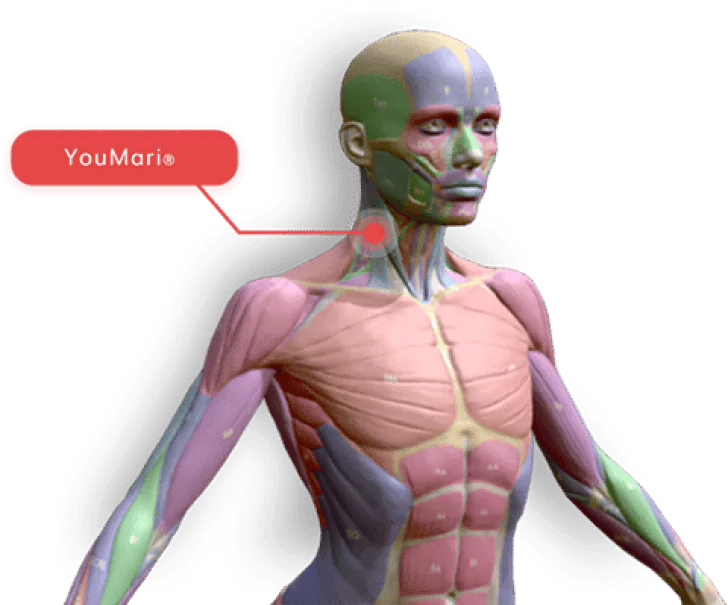Discover personalized, non-invasive therapies that target the root causes of autoimmune diseases, improve cellular health, and balance hormones—delivered in our clinics, at home, or onsite at your workplace.
Autoimmune diseases occur when the body’s immune system mistakenly attacks its own tissues, leading to chronic inflammation and damage to various organs and systems. Common autoimmune diseases include rheumatoid arthritis, lupus, Hashimoto’s thyroiditis, multiple sclerosis, and Crohn’s disease.
These conditions often result from a combination of genetic predispositions, environmental triggers, and imbalances in the immune and endocrine systems. Over 70% of autoimmune diseases affect women, often linked to hormone imbalances that exacerbate symptoms. Identifying and addressing these underlying causes is key to managing autoimmune conditions effectively.


We focus on restoring balance at the cellular level to manage autoimmune diseases effectively. Our approach integrates advanced diagnostics and regenerative therapies to target systemic inflammation, optimize hormone levels, and support immune system function. By addressing the root causes of autoimmune conditions, we empower patients to regain control of their health.

Experience hands-on care and advanced regenerative therapies in a relaxing, state-of-the-art environment.
Continue your healing journey with easy-to-use devices designed for at-home therapy.
Bring regenerative medicine to your workplace, improving employee health and productivity.
Our Regenerative Therapies our Not the Alternative, they are the
BEST CHOICE
We are committed to personalizing treatment plans based on what is best for every individual’s UNIQUE circumstances to include symptoms, budget, lifestyle, and goals. Conservative (non-pharmaceutical) care is often effective in resolving autoimmune diseases. This conservative care usually consists of getting to the root of the problem. Most autoimmune diseases are not curable but a person can live without the symptoms of the disease by addressing things like inflammation, environmental triggers such as diet, and lifestyle factors like sleep, exercise and stress.

We will review your health history, symptoms, and current treatments to help determine the severity of your condition. We may recommend additional testing and analysis to get a full picture of potential therapies personalized to you.
We will present a treatment plan that includes only those therapies proven to be effective in treating your condition. This may include comprehensive lab testing and AI analysis to find the potential causes of the severity of your symptoms. Additional options include sleeps studies, DNA nutrigenomics analysis for lifestyle design, food sensitivities, pharmacogenetics testing to determine if medication are effective based on your genetics, and other therapies to resolve issues causing inflammation, pain and other autoimmune symptoms. You will be provided with treatment plan options and timelines with transparent out of pocket costs to you.

Treating autoimmune diseases often requires a multi-faceted approach, combining medication, lifestyle changes, and sometimes adjunctive therapies. The effectiveness of treatments can vary based on the specific autoimmune disease and individual patient characteristics. Autoimmune diseases involve the immune system attacking the body’s own tissues. Integrative and regenerative medicine therapies can offer supportive treatments alongside conventional therapies.
Shockwave Therapy (Extracorporeal Shock Wave Therapy) is primarily used for musculoskeletal issues but has potential applications in autoimmune diseases that involve chronic pain.
Red Light Therapy (Low-Level Laser Therapy) uses specific wavelengths of light to reduce inflammation and promote tissue repair, which can be beneficial for autoimmune conditions.
Inflammation Programs focus on dietary adjustments, supplements, and lifestyle changes to manage chronic inflammation, a key factor in autoimmune diseases.
Bioidentical Hormone Replacement Therapy addresses hormonal imbalances that can affect immune system function and inflammation.
Neuro Inflammation Programs target inflammation in the nervous system, which can be relevant for autoimmune diseases affecting the central nervous system.
Hands-On Medical Massage helps reduce muscle tension, improve circulation, and relieve pain, which can be beneficial for managing symptoms of autoimmune diseases.
Sleep Programs aim to improve sleep quality, which can be disrupted by autoimmune diseases and inflammation.
Integrative and Regenerative Therapies for treating autoimmune diseases often focus on managing inflammation, improving pain, and supporting overall well-being. These therapies include:
Integrating these therapies into a comprehensive treatment plan can help manage autoimmune diseases and improve patient outcomes.
Autoimmune diseases occur when the immune system mistakenly attacks the body’s own tissues. This can lead to inflammation and damage in various organs and systems. Examples include rheumatoid arthritis, lupus, and multiple sclerosis.
Autoimmune diseases are believed to result from a combination of genetic predisposition, environmental factors (such as infections or toxins), hormonal changes, lifestyle factors and chronic inflammation.
Diagnosis involves a combination of medical history, physical examination, laboratory tests (e.g., autoantibody tests), imaging studies, and sometimes biopsies.
Most autoimmune diseases cannot be cured. However, they can be managed with medications, lifestyle changes, and other therapies to control symptoms, reduce inflammation, and improve quality of life.
Treatments include treatment plans are individualized based on the specific disease and patient needs. These plans are centered around decreasing inflammation and pain and may include diet changes, stress reduction, sleep improvement, balancing hormones, shockwave therapies for pain and red-light therapies (photobiomodulation) for inflammation and pain reduction as well as regenerative cellular healing.
Genetics play a role in autoimmune diseases, as they can run in families. However, having a family history does not guarantee that you will develop an autoimmune disease.
Diet and lifestyle can impact symptoms and overall health. An anti-inflammatory diet, regular exercise, stress management, and avoiding known triggers may help manage symptoms and improve quality of life.
Managing flare-ups typically involves adhering to prescribed treatments, avoiding known triggers, managing stress, and making lifestyle adjustments.
Yes, autoimmune diseases can impact daily life by causing symptoms such as pain, fatigue, and mobility issues.
Stress can exacerbate autoimmune conditions and trigger flare-ups. Managing stress through relaxation techniques, counseling, and healthy lifestyle choices is important for overall well-being.
Autoimmune diseases can affect pregnancy, but many women with these conditions have successful pregnancies with proper management. It’s essential to work closely with healthcare providers to manage the condition and plan for a healthy pregnancy.
Shockwave Therapy (Extracorporeal Shock Wave Therapy) is primarily used for musculoskeletal conditions but shows potential for treating autoimmune diseases, especially those involving chronic pain.
ESWT can reduce pain and inflammation, potentially improving symptoms in autoimmune diseases that involve joint or musculoskeletal pain.
Red Light Therapy (Low-Level Laser Therapy) utilizes specific wavelengths of light to decrease inflammation and promote tissue repair.
Red light therapy can help reduce systemic inflammation and pain, and enhance cellular repair, which can benefit autoimmune disease management.
Inflammation Programs focus on dietary changes, supplements, and lifestyle modifications aimed at reducing chronic inflammation.
By managing inflammation through dietary and lifestyle interventions, these programs can help alleviate symptoms and improve overall health in autoimmune conditions.
Bioidentical Hormone Replacement Therapy involves using hormones that are chemically identical to those the body produces naturally to address hormonal imbalances.
BHRT can balance hormones that affect immune function and inflammation, potentially improving symptoms of autoimmune diseases.
Neuro Inflammation Programs focus on reducing inflammation in the nervous system, which can be relevant for autoimmune diseases affecting the central nervous system.
By addressing neuroinflammation, these programs can help reduce symptoms and improve function in autoimmune conditions affecting the nervous system.
Hands-On Medical Massage involves therapeutic techniques to relieve muscle tension, improve circulation, and reduce pain.
Medical massage can alleviate pain, reduce muscle tension, and improve circulation, which can help manage symptoms of autoimmune diseases.
Sleep Programs focus on improving sleep hygiene and addressing sleep disorders, which can be exacerbated by autoimmune diseases.
Enhancing sleep quality through sleep programs can reduce inflammation, improve overall health, and help manage autoimmune disease symptoms.
These therapies can be integrated into a comprehensive treatment plan to help manage autoimmune diseases and improve patient outcomes.
We treat a range of autoimmune conditions, including rheumatoid arthritis, lupus, Hashimoto’s thyroiditis, multiple sclerosis, and Crohn’s disease.
PBM reduces systemic inflammation and oxidative stress, supports cellular repair, and enhances mitochondrial function, which can improve energy levels and reduce autoimmune symptoms.
Hydrogen inhalation therapy combats oxidative stress and inflammation, two major contributors to autoimmune symptoms, promoting immune regulation and reducing tissue damage.
Balancing hormones like estrogen, progesterone, and cortisol reduces immune overactivity and inflammation, minimizing the frequency and severity of autoimmune flare-ups.
Genetic testing identifies predispositions affecting immune function, hormone regulation, and inflammation, allowing us to create highly personalized treatment plans.
Pharmacogenetics determines which medications or therapies work best for your genetic profile, reducing trial and error and improving outcomes for autoimmune disease management.
Yes, all our therapies are non-invasive, clinically validated, and designed for long-term use without harmful side effects.
In many cases, our therapies can reduce the need for steroids or immunosuppressive drugs by addressing the root causes of autoimmune symptoms.
Results vary depending on the individual, but many patients notice improvements in energy levels, inflammation, and symptom control within a few weeks of starting treatment.
Book a consultation with our team to assess your condition, discuss your goals, and create a personalized plan to manage your autoimmune disease effectively.
See Plans & Pricing

Connect with us over our social platforms & find special deals for you!
© Copyright 2025. All rights reserved.